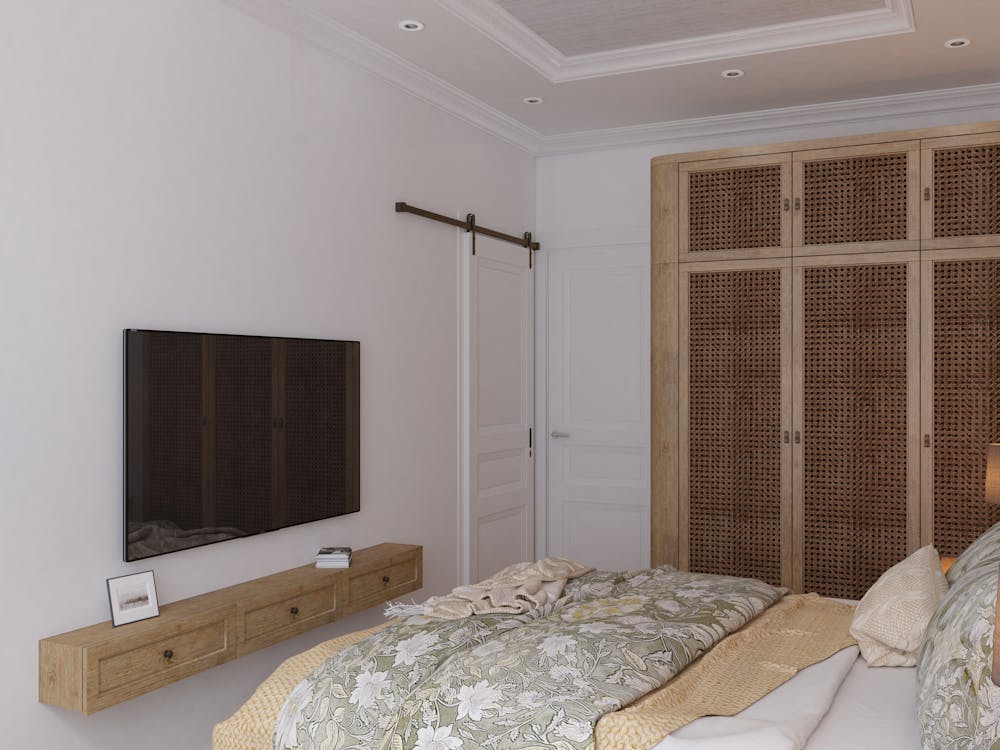Do you have trouble sleeping? Your daily wakeups produce feelings of exhaustion along with mental fog. A good evaluation of your bedroom’s Feng Shui situation requires immediate attention. Room Optimization to achieve serenity becomes essential because people spend about a third of their lives sleeping in their bedrooms.
Not sure where to start? We have the answers you need! This article will discuss the principle of Feng Shui and how you can optimize your sleep space for better rest and rejuvenation. So, let’s get on with it!
What Is Feng Shui?
Image Credits: lovetoknow.com
The perfect aura welcomes you inside a tranquil bedroom space. When you enter this room, you feel relaxed from the fresh air, its comfortable elements, and thoughtfully arranged furniture. Good feng shui practices have had positive effects on you. Are you ready to remodel your bedroom as of right now? Here is what Feng Shui means.
According to ancient Eastern beliefs, Feng Shui exists as a Chinese traditional philosophy focused on alignment between human beings and their surroundings. The Chinese language defines Feng Shui through the translation of wind and water.
Feng Shui states that qi (chi) represents the universal life force of all things in the world, which moves smoothly through correct placements. Feng Shui practices work to enable the smooth flow of qi by preventing and fixing elements that might interrupt or hinder the energy.
People sometimes question the significance of feng shui principles. Consultants practicing feng shui maintain the quality and quantity of qi throughout your environment, which impacts your various life aspects, including your wellness and abundance, romantic connections, and overall contentment.
What Are The Feng Shui Principles?
The fundamental tenets of Feng Shui encompass several key principles that govern its practice and application:
- Yin and Yang: Representing the balance of opposing yet complementary forces, Yin (passive, dark, and female) and Yang (active, bright, and male) should exist in equilibrium in every space. It’s about creating spaces that feel neither too active nor too passive.
- The Five Elements: Wood, Fire, Earth, Metal, and Water are the five elements. Each element has its qualities, colors, shapes, and directions. They can interact with each other in different ways, creating cycles of creation, destruction, or balance. You can use them to enhance various aspects of your life, such as creativity, passion, stability, focus, or emotion.
- The Bagua is the Feng Shui energy map of a space. It’s split into nine sections, each representing a different life circumstance, such as career, family, or wealth. The Bagua determines which parts of a home or room correspond to which aspect of life.
- The Commanding Position: This is the spot in a room that is the farthest from the door and not in direct line with it. It gives you a diagonal view of the door and a sense of control and security. You should place your bed, desk, and stove in the commanding position.
How To Create the Best Feng Shui for Bedroom
Image Credits: pexels.com
The first step when creating a feng shui bedroom is to understand how you’ll apply the fundamental principles above. When you do, consider these steps for your bedroom Feng Shui:
Step 1: Determine the Best Feng Shui Bedroom Location
Image Credits: decorilla.com
The best Feng Shui bedroom location is in a quiet and secluded area of your house, away from the main entrance, the kitchen, the living room, and other busy or noisy spaces. According to Feng Shui principles, a distant location will prevent disturbances or distractions that could affect sleep quality or privacy.
It would help if you also determined the direction of the bedroom, depending on your Kua number. In feng shui, you determine your Kua number depending on your birth year and gender. You can use an online Kua number calculator to determine yours. For example, if your Kua number is 8, your best direction for sleeping is southwest.
If you cannot use the Kua number, maybe because of the layout of your house or other constraints, you can use colors, shapes, elements, or symbols that correspond to your best direction to decorate your bedroom.
Step 2: Paint Your Bedroom Feng Shui- Color Selection
Image Credits: homesandgardens.com
Feng Shui implements colors as essential elements because different hues correspond to each of the five elements. Select hues that correspond to the element you wish to strengthen and harmonize with your personal style and room’s design.
Select bedroom colors from soothing blues and blacks for (Water), nurturing light yellow and brown combination for (Earth) or energetic reds and oranges for (Fire) and energizing greens for (Wood). If you want to create more focus in a room, selected metal tones in the form of whites, greys, and pastels should be your choice.
Step 3: Define A Good Feng Shui Bedroom Layout
Image Credits: homestratosphere.com
Once you’ve nailed the location, it’s time to think about the layout. Your bedroom layout affects how qi flows in and around it and influences your well-being and happiness. The basic rule of thumb for the Feng Shui bedroom layout is to keep it simple, spacious, and symmetrical.
You want to avoid any clutter, excess furniture, sharp corners, or irregular shapes that may create stagnant or negative qi in your bedroom. Also, develop a sense of balance and proportion by placing similar items on both sides of the bed.
Step 4: Master the Commanding Position
Image Credits: frontofhousedesign.com
The commanding position is a cornerstone of Feng Shui. It dictates that the most important piece of furniture in a room – in this case, your bed – should be positioned diagonally opposite the door. You should have a clear view of the entrance but not be in line with the doorway.
To master the commanding position in your bedroom;
- Identify the main door of your bedroom. It is usually the door that leads to the hallway or another room. If you have more than one door in your bedroom, choose the one you use most often.
- Locate the farthest corner from the door that is not aligned with it. This is where you want to place your bed. If you have more than one corner that meets this criterion, choose the one that feels more comfortable or suitable.
- Position your bed so that it faces the door diagonally but not directly. You should be able to see who enters without being seen immediately. Ensure enough space between your bed and the door for easy movement.
- Place a solid headboard behind your bed. A headboard represents support and stability in Feng Shui. The best is made of wood, metal, fabric, or leather. Avoid headboards with bars, slats, holes, or gaps if possible.
- Finally, ensure a solid wall behind your bed. In Feng Shui, a solid wall provides additional protection and security and blocks any negative energy that may come from outside. Avoid placing windows, doors, mirrors, or open shelves behind your bed.
If you’re not able to place your bed in the commanding position, here’s what you can do:
- If you place your bed under a window, hang curtains or blinds to cover the window at night or when you sleep. This will create a sense of enclosure and privacy in your bed.
If you place your bed under a beam, a ceiling fan, or a sloped ceiling, hang a canopy, a fabric, or a bamboo flute over your bed to soften the pressure or instability on your head or body while sleeping.
If you place your bed directly with the door, place a piece of furniture, a screen, or a plant between the door and your bed to create a buffer zone and deflect the rushing energy into your bed. You can also hang a crystal ball, a wind chime, or a bell on the door handle to slow the energy flow and make some noise when someone enters.
Step 5: Feng Shui Decor Elements
Image Credits: pexels.com
You want decorative objects, but which are ideal for a Feng Shui bedroom?
Feng Shui decor elements are items that you can use to decorate your bedroom according to Feng Shui principles. They help balance the five elements, create a certain mood or atmosphere, or attract specific outcomes or blessings.
Some of the most common Feng Shui decor elements are:
- Colors: Colors are powerful expressions of the five elements in feng shui. They affect your mood, emotions, and energy levels. You can use colors to create harmony or contrast in your bedroom.
- Shapes: Shapes also influence the flow and quality of qi in your space. You can use shapes to emphasize or balance some aspects of your bedroom. For example, square or rectangular shapes can add Earth and stability to your bedroom. You can also use round or oval shapes to add metal and elegance to your bedroom.
- Materials: They are the physical manifestations of the five elements in Feng Shui and affect the texture and feel of your space. For instance, you can use wood or bamboo materials, like duvets or furniture, to add Wood and growth to your bedroom. You can also use silk or cotton to add softness and coziness to your bedroom.
- Objects: They serve as symbols or reminders of your intentions and aspirations, and you can use them to activate or balance certain areas of your life, depending on your bagua map and Kua number. For example, you can use mirrors or crystals to activate wealth and abundance in your bedroom.
Step 6: Balance the Five Elements
Now that you know your ideal Feng Shui decor elements, you want to balance them in the bedroom to create harmony and serenity. Remember the five elements: wood, fire, earth, metal, and water? Each has its own qualities and interacts with the others. So, how do you create equilibrium?
There are two ways of balancing the five elements in your bedroom for positive energy flow:
- The productive cycle – when one element feeds or nourishes another element positively. For example, wood feeds fire; fire creates earth, the earth produces metal, metal holds water, and water nourishes wood. You can use this cycle to enhance a specific element in your space by adding the element that feeds it. For example, if you want to add more fire elements to your room, you can add more wood elements.
- The controlling cycle – when one element controls or reduces another negatively. Since wood controls earth, earth controls water, water controls fire, fire controls metal, and metal controls wood, you can use this cycle to reduce an element in your space by adding one that controls it. For instance, if you want to reduce the water element in your bedroom, add more earth elements.
Step 7: Choose Feng Shui-Compliant Artwork and Symbols
Image Credits: mindfuldesignschool.com
The artwork and symbols that enter your bedroom space should produce serene, positive emotions. Avoid artwork that expresses sadness, aggression, or loneliness. Select artwork that expresses happiness and feelings of love and peace.
Feng Shui symbols with strong energy should be part of your design plan. Mandarin ducks are perfect symbols of romance because they represent love and commitment. A Buddha statue brings harmonious energy, and a rising sun symbolizes daily hope and new beginnings.
Step 8: Determine Feng Shui Lighting and Mirror Placement
Lighting and mirrors provide dual benefits because they enhance positive energy flow while creating expanded space perception and setting an improved mood. Using these tools requires proper understanding for effective results.
I. Lighting
Image Credits: pexels.com
In Feng Shui, lighting plays an essential role because natural light contains the Fire element, strongly affecting the room’s mood. Good lighting creates a positive atmosphere and generates warmth while helping qi move efficiently.
Determine your bedroom’s lighting fixtures by selecting calming fixtures with adjustable intensity. Install ambient and task lights along with accent lights because they provide better function than harsh overhead illumination. Adjust lighting with dimmers to control the illumination level that fits your relaxation needs for bedtime.
II. Mirrors
Image Credits: mirrorcity.com.au
Feng Shui beliefs identify mirrors as elements of Water because they reflect energy and enlarge its flow. The correct positioning of bedroom mirrors requires careful planning.
A bedroom should not have mirrors positioned directly across from the bed. According to Feng Shui principles, the room energy will bounce and disturb your rest whenever mirrors are placed. A mirror can be placed within a closet door or pointed toward soothing elements like attractive scenery or peaceful artwork.
Step 9: Managing Clutter for Positive Energy Flow
Image Credits: pexels.com
Feng Shui follows a core principle that requires the free movement of energy. A disordered environment disrupts energy flow, causing stagnant areas with low energy levels. The practice of Feng Shui calls for properly managing clutter in your bedroom space.
Here are some Feng Shui tips to help you declutter:
- Clear under the bed: The space under your bed should be empty to allow qi to circulate freely. If storage under the bed is unavoidable, ensure it’s organized and used for soft items like linens or clothing.
- Tidy nightstands: Keep your nightstands clutter-free, and they should only hold essentials like a lamp, book, or alarm clock
- Manage your wardrobe: Regularly clear out your closet and discard or donate clothes you no longer need or wear
- Cleanliness is key: A clean space is a clear space, so regular cleaning can help keep clutter at bay
- Use smart storage furniture like beds with built-in drawers, wardrobes with good organization systems, and cleverly placed shelves
- Avoid overfilling your storage units: Just because clutter is out of sight doesn’t mean it isn’t affecting the energy of your spaces, so regularly clear out and organize them to keep the energy flowing freely.
Should You Have Plants in a Feng Shui Bedroom?
Image Credits: thespruce.com
In traditional Feng Shui philosophy, keeping plants out of the bedroom is generally advised. The reason? Plants contain vibrant, active energy (Yang energy), which can conflict with the calm, restful energy (Yin energy) you want in a bedroom.
However, some exceptions and remedies exist for having plants in the bedroom if you love them or have no choice.
Opt for plants with rounded leaves (no sharp edges or spikes), and avoid placing them directly in line with your bed or where your feet point when you sleep. You can also use artificial plants instead of real ones, as they do not require the same energy or water as living plants.
Electronics in the Bedroom? A Feng Shui Perspective
Image Credits: pexels.com
Electronics represent bad bedroom feng shui because they stem from the fire element, which is known for its energetic stimulation that interferes with relaxation and sleep.
Every electronic device you possess, including TVs, computers, phones, clocks, and radios, should always remain out of your bedroom. You can minimize negative electronic effects by following specific tips when required due to necessity or personal taste.
For example, limit their usage before bedtime and keep them as far from your bed as possible. Consider using a screen or a cabinet to hide them when they’re not in use.
Conclusion: Restful Sleep with Good Feng Shui
A Feng Shui bedroom goes beyond traditional rules because it creates locations that harmonize with your spirit and need for relaxation.
The article presents foundational knowledge to start designing restful spaces even without the assistance of a certified Feng Shui consultant. When implementing Feng Shui principles always remember life changes are inevitable and expected by the practice. Your bedroom must adjust to your life journey to mirror your personal development and transformation.
You should analyze the applicability of these concepts for your entire house and life. The essence of Feng Shui teaches how to create a balance between human beings and their environment, expanding into something larger than typical decor lessons.







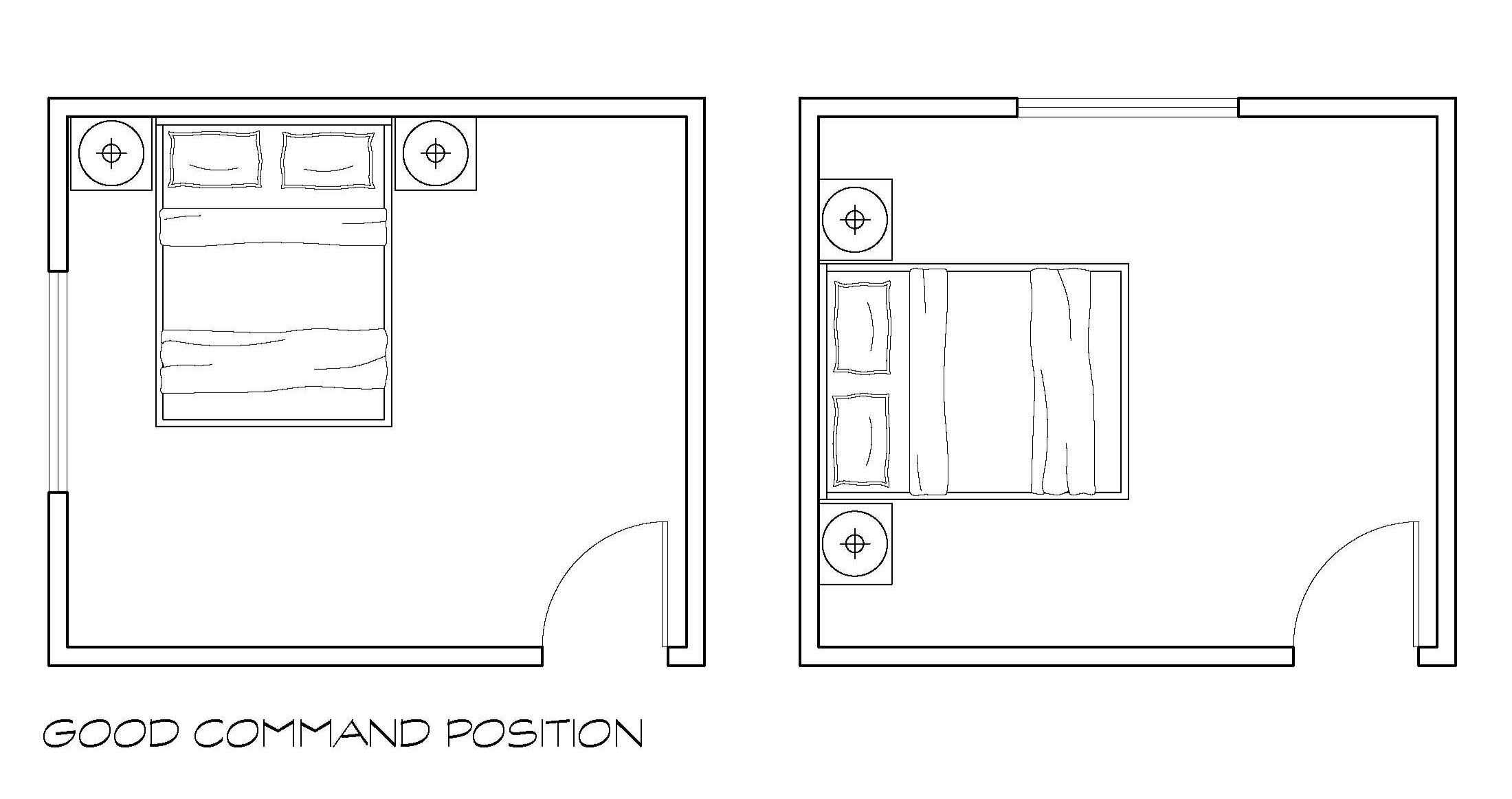
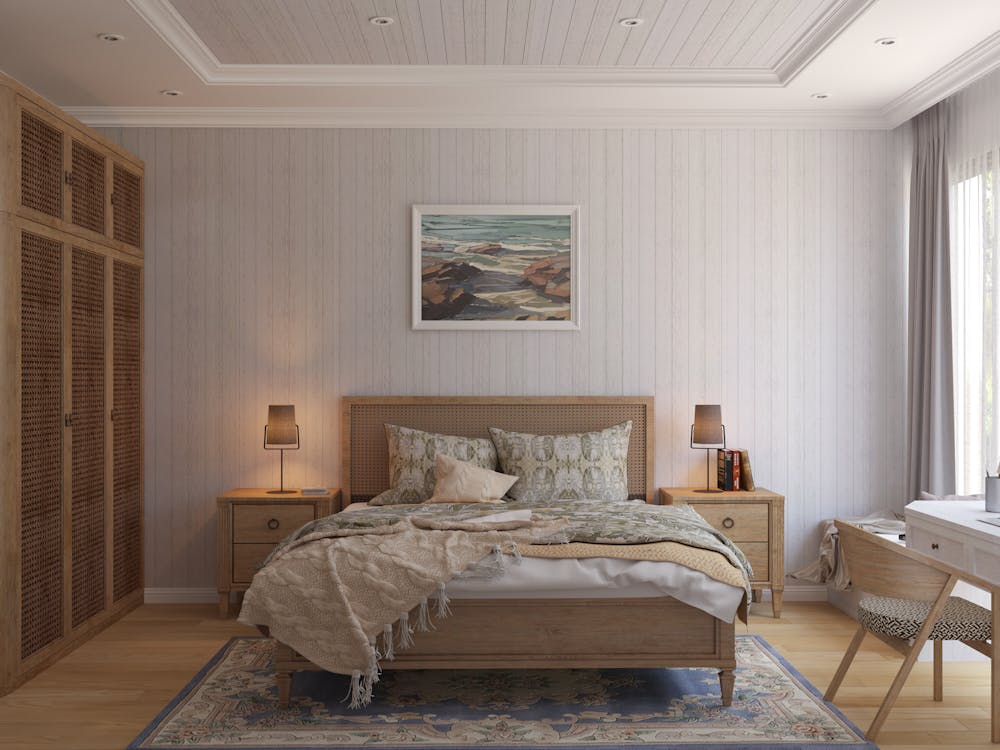
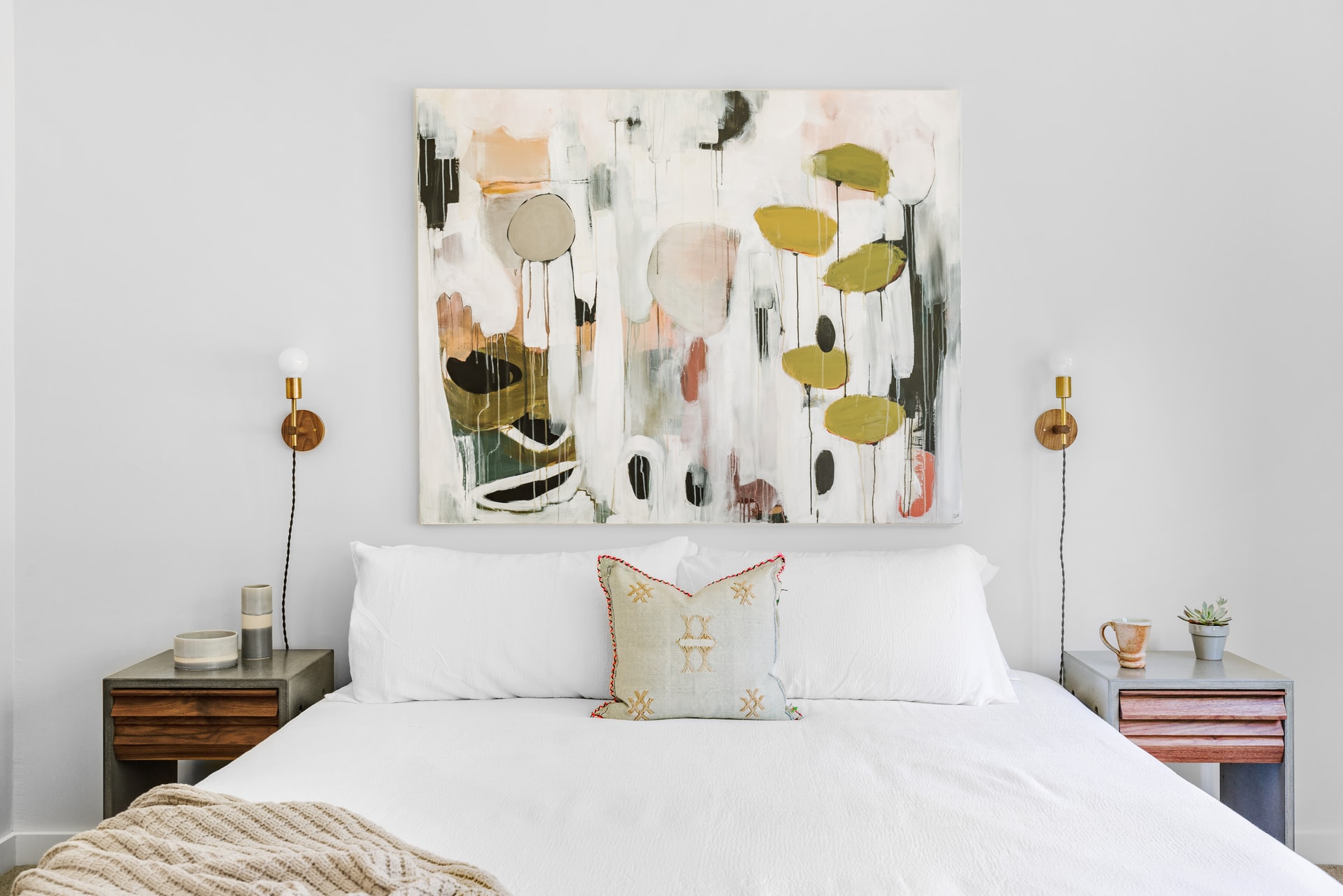
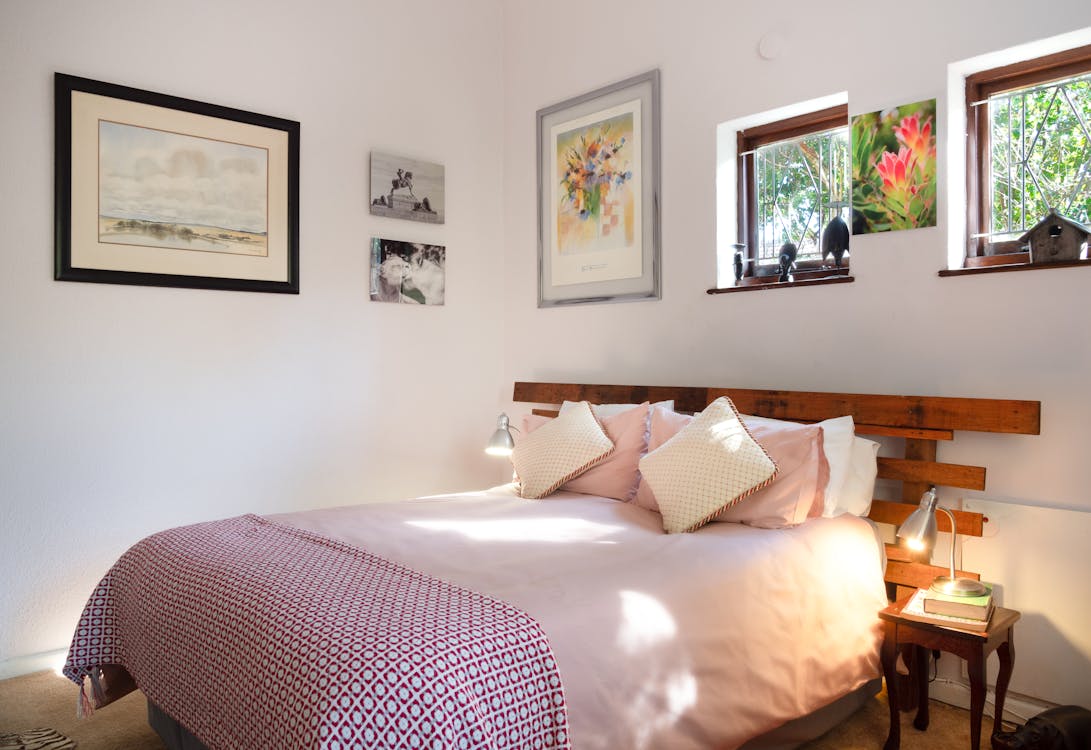


:max_bytes(150000):strip_icc()/plants-in-the-bedroom-1274803-01-317b9373bcfc417a9c926d6723c3f4fe.jpg)
